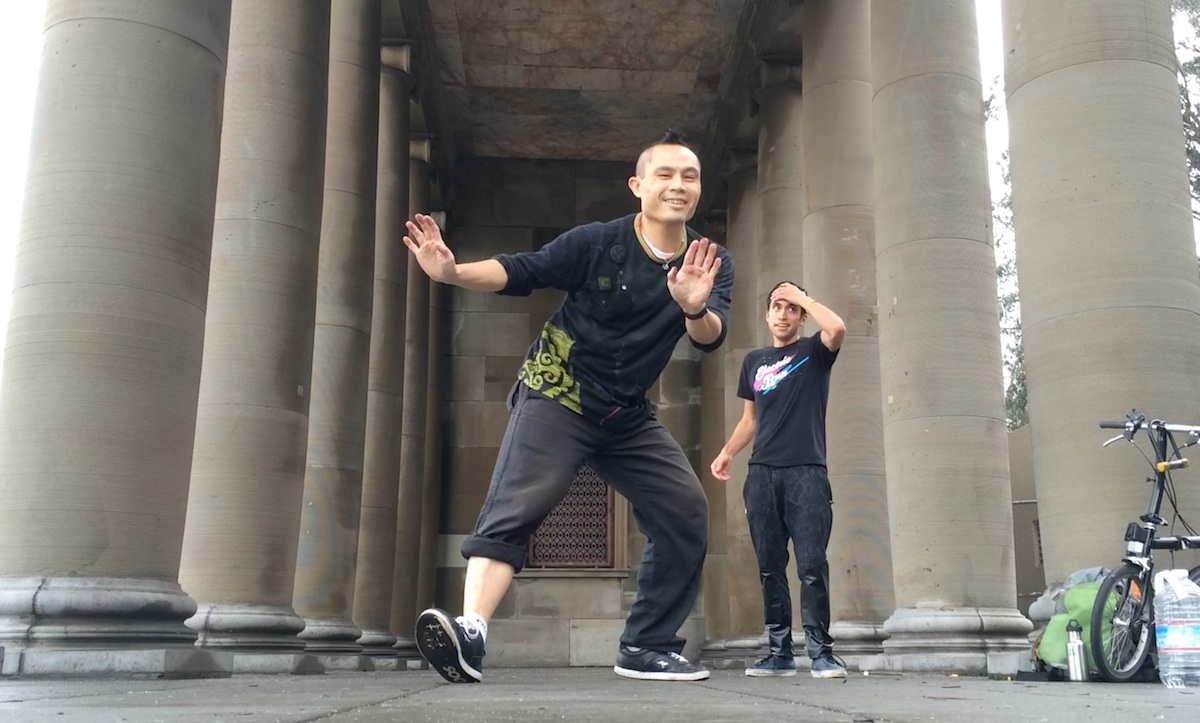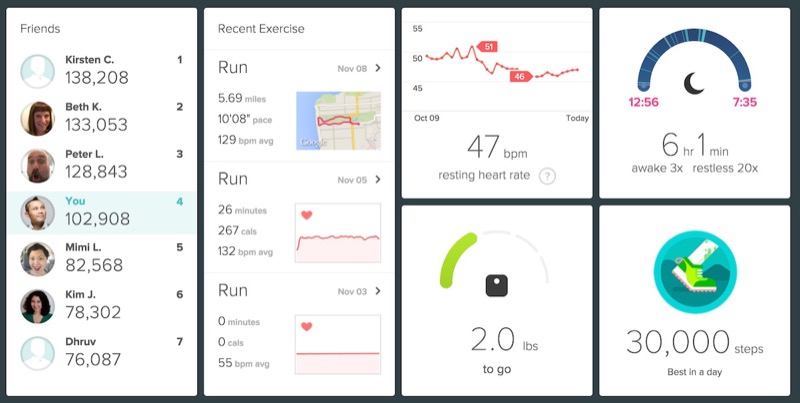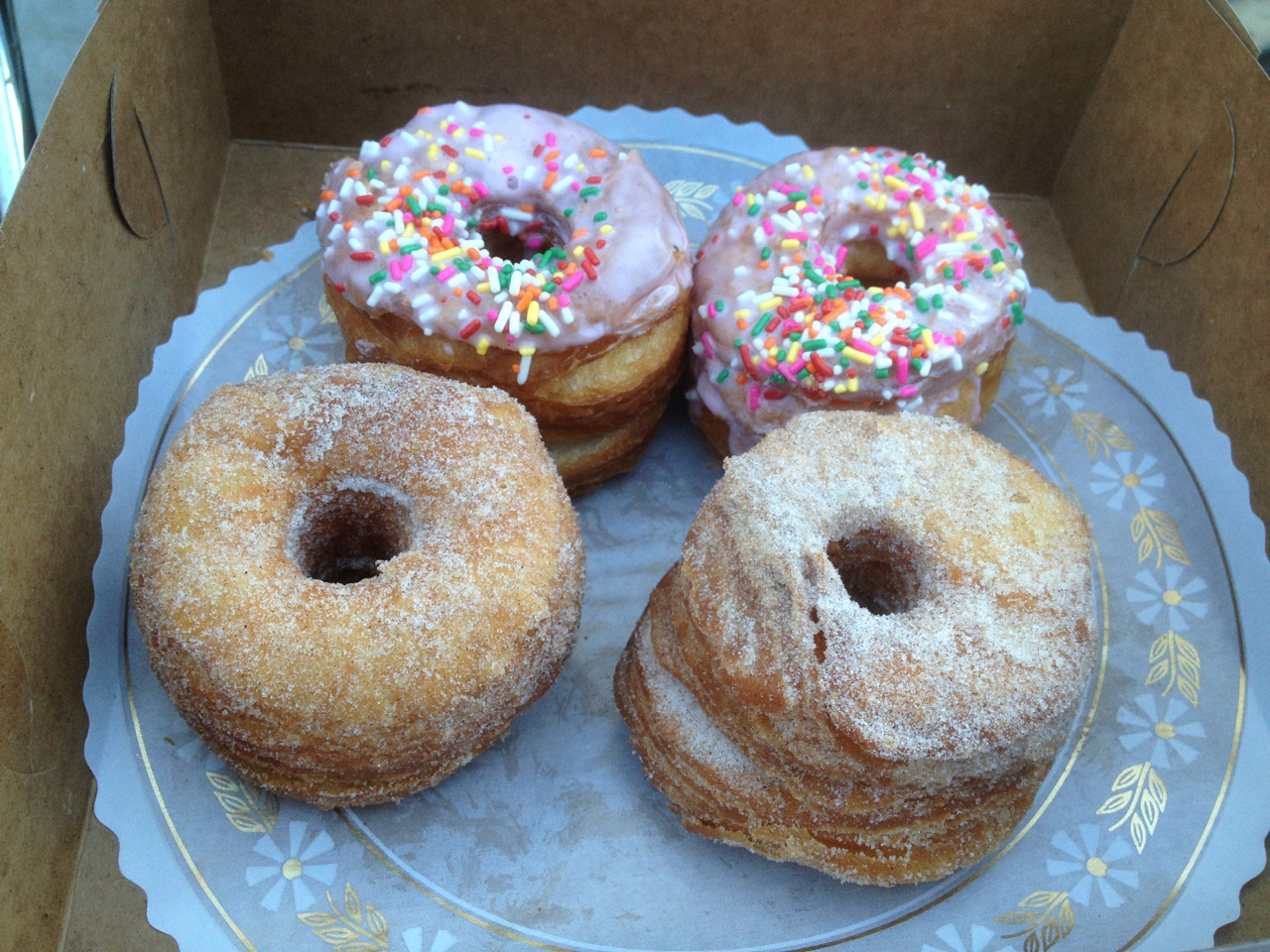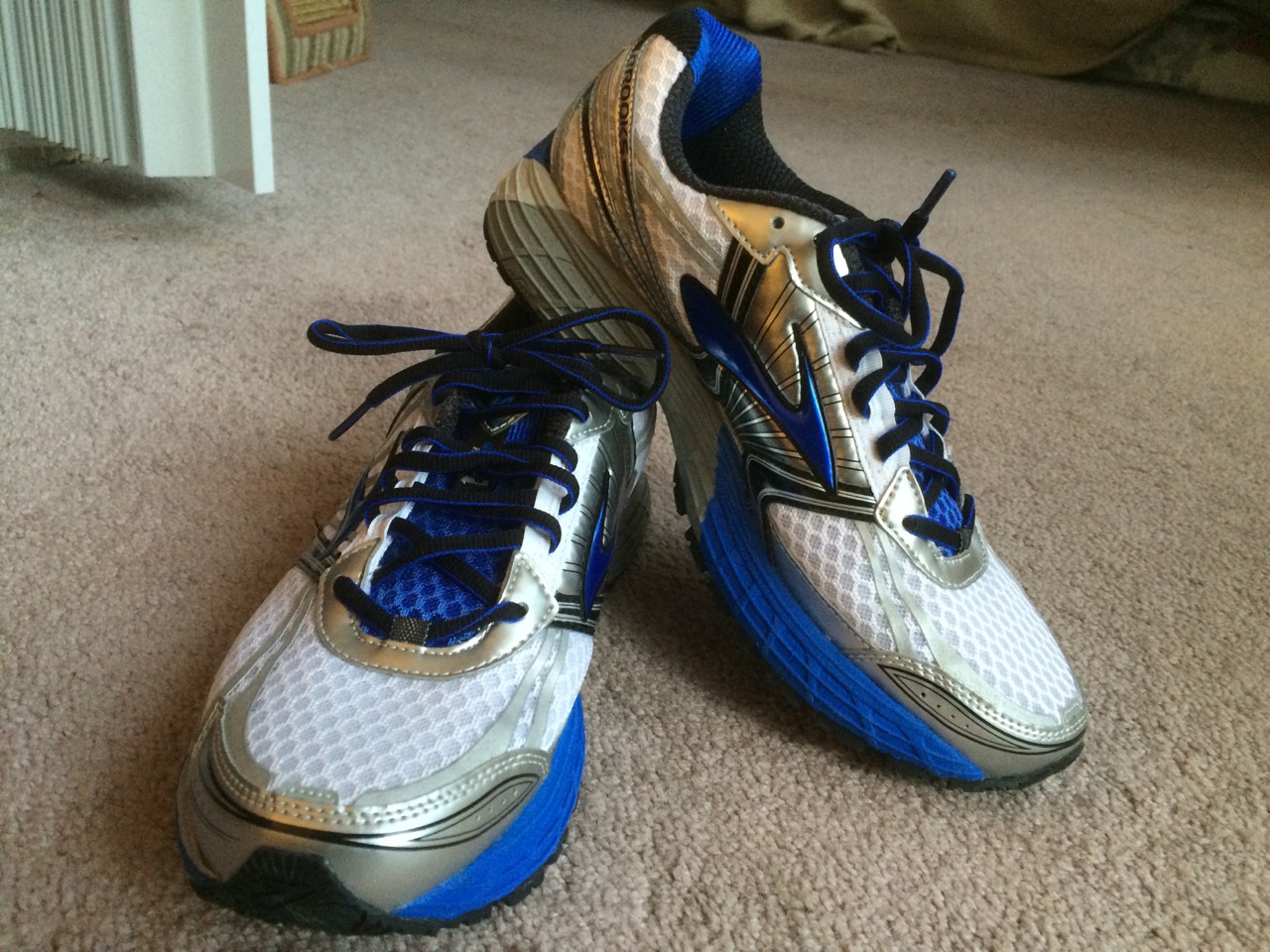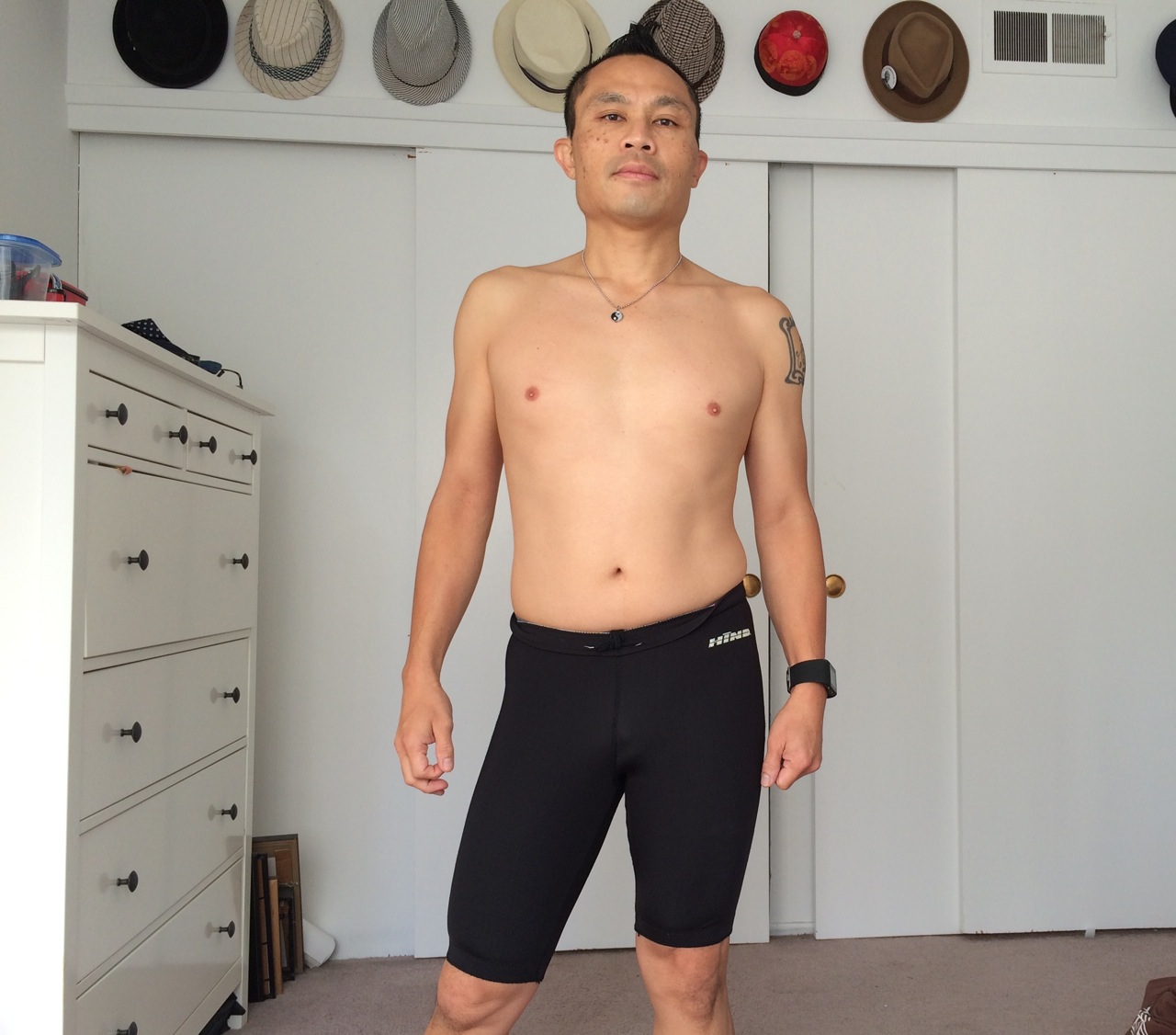So for the past year or so, I have been doing a number of health and diet interventions to live more healthily and energetically. I've tried to avoid crash diets and short-term interventions, and instead focus on small, incremental changes that might have longer-term benefits down the line, as well as more immediate improvements today. I'm in this for the long haul.
One of the challenges of this approach is that I was already in pretty great shape going in. I lead an active, fairly healthy lifestyle, including regular exercise, a fairly balanced diet, and no alcohol or drugs. Still, I had goals to generally be more tone, to get rid of my love handles and gut, and to have increased energy throughout the day. In short, I wanted to look better and feel better.
Interventions and Experiments

Here's the list of things I've tried and sustained over this period:
Exercise: running at least 2 miles 3-4 times a week. Since September 2014.
Diet: Reducing meat / stop eating beef. Since November 2014.
Diet: High-protein, low-carb, no dairy breakfasts. Since July 2015.
Diet: No processed sugar. Since September 2015.
Treatment: Cold showers for weight loss and other health benefits. Since October 2015.
So here's the results (so far)!
Overall Health and Weight
The biggest change is that I've lost about 15 pounds since November 2014 to today, going from 157 to 142 as of this morning. I've had fluctuations over that period, but generally have been losing consistently over that time. My doctor told me during my last check-up that she was happy to see my test results, and that I should keep up whatever I was doing, since it was working.
Energy
Over the past year, I feel that my overall energy level has improved. I experience less afternoon sluggishness that I used to get all the time and needed lots of coffee to get through the day. I have been sleeping better, getting a solid 7 hours most nights, waking on time, often without need for the alarm clock.
Mood
One of the things I worried about was that I was going to be a grouch all the time and not fun to be around, particularly because of the diet stuff. I actually empowered my co-workers to make me eat a cookie if I was just too bitchy and whiny. But it hasn't come to that (yet.)
Surprisingly, by and large, I've been my normal, content and positive self. Even cutting out the processed sugar hasn't really dampened my mood that much this past two months, and I see no reason why I shouldn't keep it up.
Five Tips for Sticking to Your Health Goals
So why am I sharing all this? Partly it's to brag, since it has been quite a bit of work over the past year to achieve all this. I've had to rethink my diet, make smarter food shopping choices, get up and run every other morning, pass up sweets and pastries, and get used to taking cold showers in the morning. So yay me!
But also I know I'm not the only person trying to make smarter choices about my health. And I've started and stopped similar efforts in the past, lasting only a few weeks at best. So I'm hoping that by sharing this, I can encourage others to make the changes that they need to lead healthier lives.
So here's some tips that have helped me:
1. Gradual Is Better than Cold Turkey
Everyone works differently and has different methods to start healthier habits. But for me, doing gradual, incremental steps has worked better than drastic, cold turkey methods.
For example, last year I decided to try and reduce the amount of meat I was consuming. I didn't want to go full vegetarian, since I have tried and failed to do that several times over the years. I just like meat too much. But for both environmental and health reasons, I wanted to see how much I could reduce my meat intake.
I started small: one day a week as a vegetarian. Breakfast was easy of course, since I don't normally eat meat in the morning. Lunch was a little harder, but there were definitely lots of great choices I had near me. But dinner was the hardest, since I have grown used to the idea of meat as the "main course" and felt cheated unless I had some in the evenings.
It turns out that one day a week was too hard for me. What day would I choose? Would I make a special dinner meal or eat out that day? It was just hard for me to organize and figure out. But strangely what wasn't hard was choosing to have 2-3 meatless meals a day. So I was reducing my overall carbon footprint, and perhaps making better health choices for myself. And it felt like a lot less effort.
Another example is cold showers, a health intervention that I've tried and failed a couple of times to do in the past. (I am going to write more about this when I get to the 30 day mark on that intervention.) What has helped this time around has been gradually shifting toward a greater and greater percentage of my shower time with cold water. At first it was a hot shower as normal with literally just 10 seconds of cold water at the end. For the first couple of days, I had to grit my teeth and count off each second like it was an eternity. But over about a week I got used to the cold and going to 20 seconds felt manageable. I'm up to a minute now, and think I can totally eliminate the hot water portion soon.
2. Keep Track
I have used at least four different exercise and diet tracking systems, and honestly they all work about the same. Basically, you just need some way of tracking your progress over time and logging your achievements. Weight Watchers has the best diet tracking features that I've ever used, including automatic calculations of common food items and a simple points system. MapMyRun is great for tracking my runs and hikes, with nice charts, interactive maps, and exportable data. I've been using it off and on since 2011, and it keeps getting better and better.
But FitBit has the best overall health tracking system that I've ever used. The website has a customizable dashboard that you can use to track exercises, weight, food, heartrate, sleep, even water consumption. It automates a lot of that tracking using the Fitbit device you are wearing, so takes away a lot of the hassle of entering data. There's a huge Fitbit community, and seeing your progress alongside what your friends are doing is pretty neat. And it looks great on your computer or your smartphone.
Maybe it's obvious, but you can't know how you are doing unless you can see how you are doing. And it's now easier than ever to set up a system to monitor your progress.
3. Cheat on Your Diet
I am a firm believer in diet Cheat Days. There are two good reasons for setting up a Cheat Day on your diet: (1) they are going to happen, so you might as well schedule them, and (2) they help you achieve your health goals.
The hardest part for me about having a Cheat Day is keeping it just to one day. I used to have one Cheat Day a week, and I would shift it around depending on what else was happening in my life. Did so-and-so have a birthday on a Wednesday? Well, that week Wednesday was my Cheat Day! Was I going to a wedding on Sunday? Sunday was my Cheat Day that week! But what ended up happening was that I would forget if I had used my Cheat Day or not. Or I would schedule Cheat Days too close to each other, and would end up feeling like I had pigged out for much of the week.
So in my experience it works best if you schedule one Cheat Day a week and you stick to it. I have found that Saturday works the best. So even if I am craving a doughnut on Wednesday, I can save that craving for just a couple of days and indulge on Saturday. Now that I've been doing a Saturday Cheat Day for awhile, I find it hard to remind myself that I actually NEED to indulge on Saturday.
There's some science behind why Cheat Days are important for your health. According to several sources, the key is the control of leptin secretion. Leptin is a hormone secreted by fat cells that is key to maintaining energy balance in the body. When leptin levels reach a certain threshold, it signals to the brain that you have sufficient energy stored and you feel satiated. However, when leptin levels drop, you brain signals for you to eat more. Caloric restriction unfortunately causes a drop in leptin levels, which can increase the feelings of hunger and lead to bingeing. According to some research, occasionally eating more calories, particularly carb-heavy foods, can increase leptin levels and prevent mindless noshing. (See Greatist for details and sources.)
Put more simply, having small, scheduled "cheats" prevents more significant falling off the wagon, keeps your spirits up, and actually makes you healthier over the longer period.
4. Brag
Question: If you are a vegan who does Crossfit, which one do you bore other people about first at a party?
But seriously, I have found it helpful to put out to the world (or at least my immediate community) when I am working on some health goal. That helps me stick with my goal by putting it out there publicly. And that hopefully enlists allies to help when I'm struggling, and to cheer when I've met a milestone.
I use the social sharing feature of whatever health system I'm on to post to Twitter and/or Facebook when I've finished a particularly challenging workout. I hope it isn't too annoying for people who follow my feed.
At the end of the day, you can be your own worst critic or your own cheerleader. Practicing giving yourself little pats on the back when you do something good isn't being a self-centered jerk, it's having a healthy and positive self-regard. So when you run up a volcano, it's okay to be proud.
That said, you can overshare your awesomeness…
5. Gear Up
At least four or five times in my life I have tried to start running and failed. I just really hated it and couldn't keep it up for more than a month. What made the difference this time around? The right pair of running shoes.
It makes sense: if it hurts every time you do something, you aren't going to want to keep doing it. My pair of Brooks Adrenaline GTS 14 shoes aren't going to do the running for me. But my feet feel supported and comfy when I have them on, which helps me get motivated to run, even if its cold and drizzly out.
There's other gear that I've purchased that has made it easier for me to stick to my health goals. I love my FitBit Surge activity tracker / exercise watch. Yeah, it won't win any awards for aesthetics. But it does a great job tracking my movement, heartrate, and location automagically. I also upgraded to a new hybrid Trek bicycle, which gives me more options if I don't feel like doing a run.
I'm not big on fitness clothing, but I know that others find that having special workout wear helps them get in the zone. If you listen to music or podcasts, a good pair of exercise headphones can make all the difference.
You need to figure out what gear you need to get to your own fitness and health goals, within your budget constraints. I look at it as an investment in my health and well-being over time. So spending $150 on a pair of good running shoes, or $100 on an exercise band, might seem like a lot of money, but compared to the benefit that you will be reaping over potentially years of use, that seems like money well spent.
Conclusion… For Now
So here's where I am at. Over the past year I've tried a bunch of different stuff, learned a lot about myself and my body, and generally feel satisfied with what I've achieved. I am happy with my reflection in the mirror and feel at home in my body. And that's worth acknowledging and celebrating.
I wish you the best in your own quest for health and better living!
